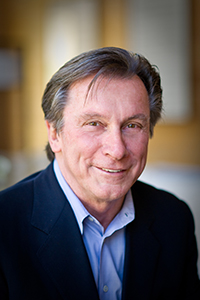
White Collar Addiction on the Rise in Current Economic Climate

By A.P. Hill
For many people the most difficult option is seeking help for an addiction, be it alcohol, illicit drugs or any addictive substance. This is especially true for those who are the face of a company, a community or government. The options are few in allowing them to seek help while maintaining a sense of dignity and anonymity.
For the CEO of a corporation the consequences are far greater than personal embarrassment. Word of a top executive with a problem entering a rehabilitation facility could, and generally will, have extremely dire consequences for the corporation.
Who wants to work for, deal with or invest in a major corporation whose top executive is an addict?
Whether the U.S. is truly out of the recession that hit in 2008 is a subject of much debate. What is certain is that the economic climate is uncertain and American businesses are still in survival mode. The pressure faced by company leadership to keep their businesses alive and thriving is tangible. It is therefore of little surprise that among the generation of current company leadership it is the baby boomer generation where substance abuse issues are on the rise at an alarming rate. And because corporate leadership positions require executives to be “plugged in” 24/7, these issues are going untreated.

According to data gathered in the National Survey on Drug Use and Health (NSDUH), between 2006 and 2008, an estimated 4.3 million American Adults ages 50 and older had abused an illicit substance in the past year. Of those using drugs, more than a third were abusing prescription drugs.
Similarly, the Substance Abuse and Mental Health Services Administration (SAMHSA) found that the proportion of older people treated for a combination of cocaine and alcohol abuse tripled between 1992 and 2008. Further, SAMHSA predicts the issue of substance abuse among this generation will require doubling of treatment programs for this population by the year 2020.
According to Joe McKinsey, Founder and CEO of the Dunes East Hampton Treatment Residence, “What’s worse about the issue of substance abuse among corporate leadership of the baby boomer generation, is that because of the need for executives to be plugged in 24/7, countless thousands of those suffering from addiction don’t feel that treatment is an option given their career obligations. They remain addicted and feel helpless to get the treatment they need. They simply can’t walk away from the pressures of a high paying position for 90 days or longer,” says McKinsey.

Executive Treatment Program
In response to the growing problem of substance abuse among a generation of leaders who simply can’t unplug, The Dunes East Hampton has developed an “Executive Treatment Program.”
This unique and effective program will allow an executive to maintain contact with his or her office associates and clients while receiving individualized treatment for substance abuse and any co-existing disorder that may need clinical attention.
“CEOs and high level executives have empires to run and most likely will not leave their business duties to check into rehab due to the catastrophic damages that could be done in the company due to their absence,” Joe McKinsey, Founder of The Dunes East Hampton said. “So much is riding on the ongoing functionality and success of a company that we understand the need for an executive to be constantly plugged into work matters.”
The Dunes Executive Treatment Program is available to clients that cannot detach from their work. The Dunes provides sufficient time, workplace, and administration support so that the client may maintain contact with their associates while they receive the benefit of a safe and nurturing environment.
The program also allows a client to attend off-site business appointments, accompanied by a Dunes staff member, to keep face for their company.
As the first and only luxury rehabilitation center in the Northeast, The Dunes is especially seeing the New York business clientele take advantage of their Executive Treatment Program.

About the Dunes East Hampton
Recovery planning and education at The Dunes is collaborative and comprehensive. Collaborative, because at The Dunes, clients are involved every step of the way, in designing their own individualized recovery plans and structured post-Dunes continuing recovery plans. Their approach gets clients committed to saving their own lives, from their very first steps in treatment, helping to ensure they are completely engaged in their recovery plan.
Comprehensive, because members of The Dunes management and the clinical team recognize there are many facets to each client’s cycle of addiction in order to give clients the best opportunity for long term recovery.
At The Dunes every client’s recovery plan recognizes the benefits that accrue to them when they actively participate in their recovery. Then, when clients leave The Dunes, the program ensures each client gets the support that can only come from a continuing care program that emphasizes structure and accountability.

